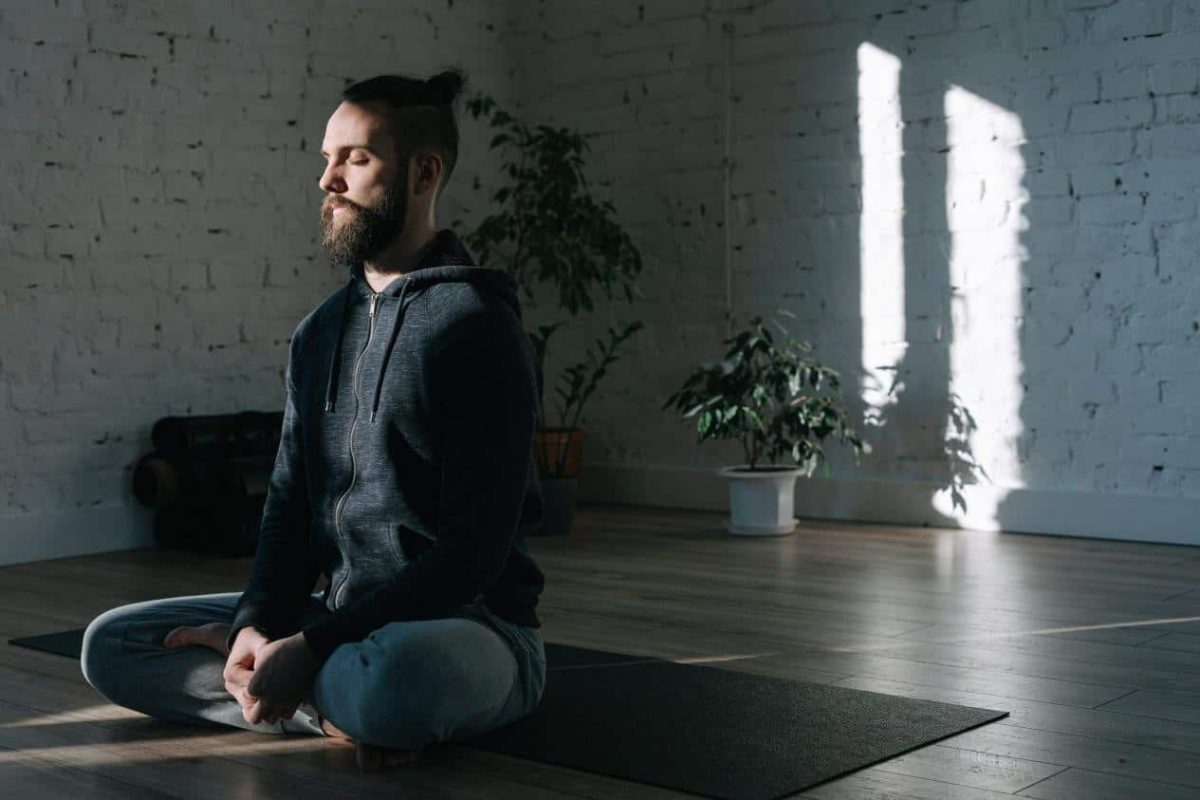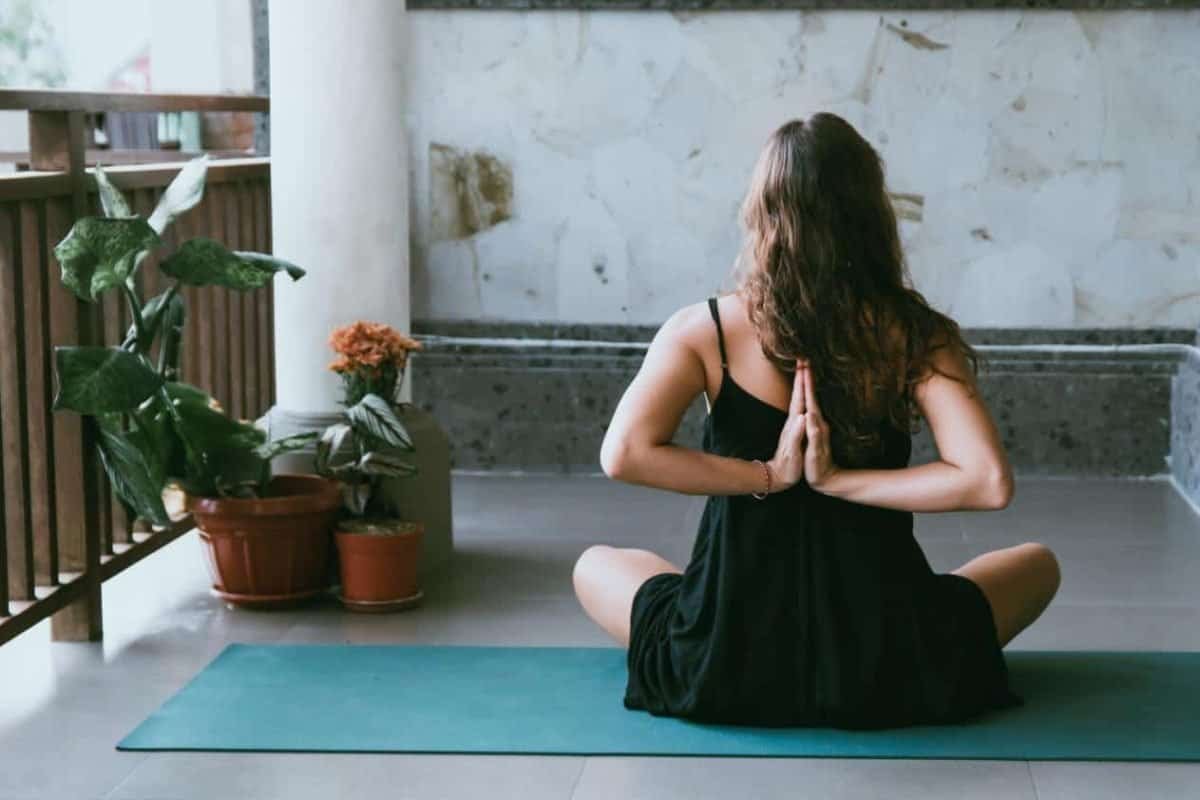The title of this article seems a little counter-intuitive. After all, meditation and yoga are supposed to make you feel light and relaxed, right? Well, for some people, meditation isn’t the calming and soothing experience it is perceived to be. Some people feel tired and drained, even after short meditative sessions.
But why does this happen in the first place? Sometimes, you feel post-meditation exhaustion due to a lack of sleep, while sometimes, it is due to a busy and hectic schedule you follow. It could also happen due to poor eating habits. Maybe, you are consuming food that makes you lethargic rather than energizing you. It could also be due to a lack of focus.
Every human being is different when it comes to the impact of meditation. This is why the reasons behind this feeling of tiredness can vary. In the following paragraphs, we will study in detail the reasons why meditation makes you feel tired.
Lack of Sleep
Some people find that meditation makes them tired rather than providing the energy boost they were hoping for. This is usually due to a lack of sleep. When you meditate, your mind and body are in a state of relaxation.
This can be beneficial if you’re struggling with insomnia or other sleep disorders, but it can also make it difficult to stay awake during the day. If you’re feeling tired after meditation, it’s probably because you need to get more sleep.
Try Meditating before bed instead of during the day, or take a nap after your session. With a little bit of trial and error, you should be able to find a time that works for you.
A Busy Life
If you’ve ever tried meditation and felt more tired afterward, it’s not just in your head. A new study has found that people with busy lives and hectic work schedules are more likely to feel tired after meditating.
The study, which was conducted by the University of Queensland, looked at a group of students who were asked to meditate for 10 minutes a day for two weeks. At the end of the two weeks, the students who had busy lives and hectic work schedules were more likely to report feeling tired after meditation than those who didn’t have as many demands on their time.
While the study didn’t look at why this is the case, the researchers speculate that it may be because meditation requires focus and concentration, which can be taxing for people who are already juggling many different tasks. So if you feel tired after meditation, it may just be a sign that you need to take a break from your busy life and relax for a bit.
Poor Eating Habits
If you’re finding that meditation is making you tired, it’s likely that you have some poor eating habits. Many people think that meditation is a very relaxing activity, but it can actually be quite strenuous on the body.
When you’re meditating, you’re focused on your breath and trying to clear your mind, which can be taxing on your energy levels. If you’re not eating healthy foods or getting enough nutrients, your body won’t have the resources it needs to sustain that level of focus.
As a result, you’ll start to feel tired and may even fall asleep during meditation. So if you want to avoid feeling exhausted after meditation, ensure you eat a healthy diet and get all the nutrients your body needs.
Sometimes, malnutrition can lead to post-meditation exhaustion due to your high-carb diet. High-carb diets slow you down and make you feel tired. If you meditate regularly and don’t want to feel too drained out, try switching to the keto diet. Oats and leafy greens can help you with your problem.
You Are Distracted
Meditation can tire you out because it demands focus and concentration. It can be difficult to maintain your focus on meditation if you have a lot of racing thoughts, worries, or distractions. As a result, you may find yourself exhausted at the end of your meditation session.
Meditation can tire you out because it can lead to daydreaming. Daydreaming requires mental energy and can deplete your reserves, leading to fatigue. While meditation can be tiresome, it is also a powerful tool for stilling the mind and achieving inner peace.
With practice, you will be able to find the perfect balance between effort and ease in your meditation practice.
How to Make Meditation an Energizing Experience
If you’re like most people, you probably think of meditation as a way to relax and calm your mind. And while it can definitely be used for that purpose, meditation can also be an energizing experience. Here are five tips to make meditation an energizing experience:
- Set an intention for your meditation. When you have a specific purpose in mind, your meditation will be more focused and effective.
- Sit up straight with your spine tall and your shoulders relaxed. This will help you to stay alert and awake during your meditation.
- Focus on your breath and breathe deeply from your abdomen. Deep breathing will help to oxygenate your blood and improve your overall energy levels.
- If your mind starts to wander, simply bring your attention back to your breath. Don’t get frustrated or upset if your mind wanders – it’s perfectly normal! Just gently bring your attention back to the present moment.
- When you’re finished meditating, take a few moments to sit quietly and observe how you feel. You may find that you have more energy and vitality than before you began meditating!
Our Final Thoughts
As discussed above, there are various reasons why meditation can be a tiring experience. However, you can do a few things to feel energized after a meditation session. First of all, make sure to have a good night’s sleep.
Secondly, pay attention to what ends up in your stomach. Eating a diet low in carbs and high in good fats gives you a feeling of satiety without having to eat in bulk.
Lastly, try to empty your mind and focus as much as possible when meditating. The last one can be tricky, but with time and practice, you can get the hang of it.

















